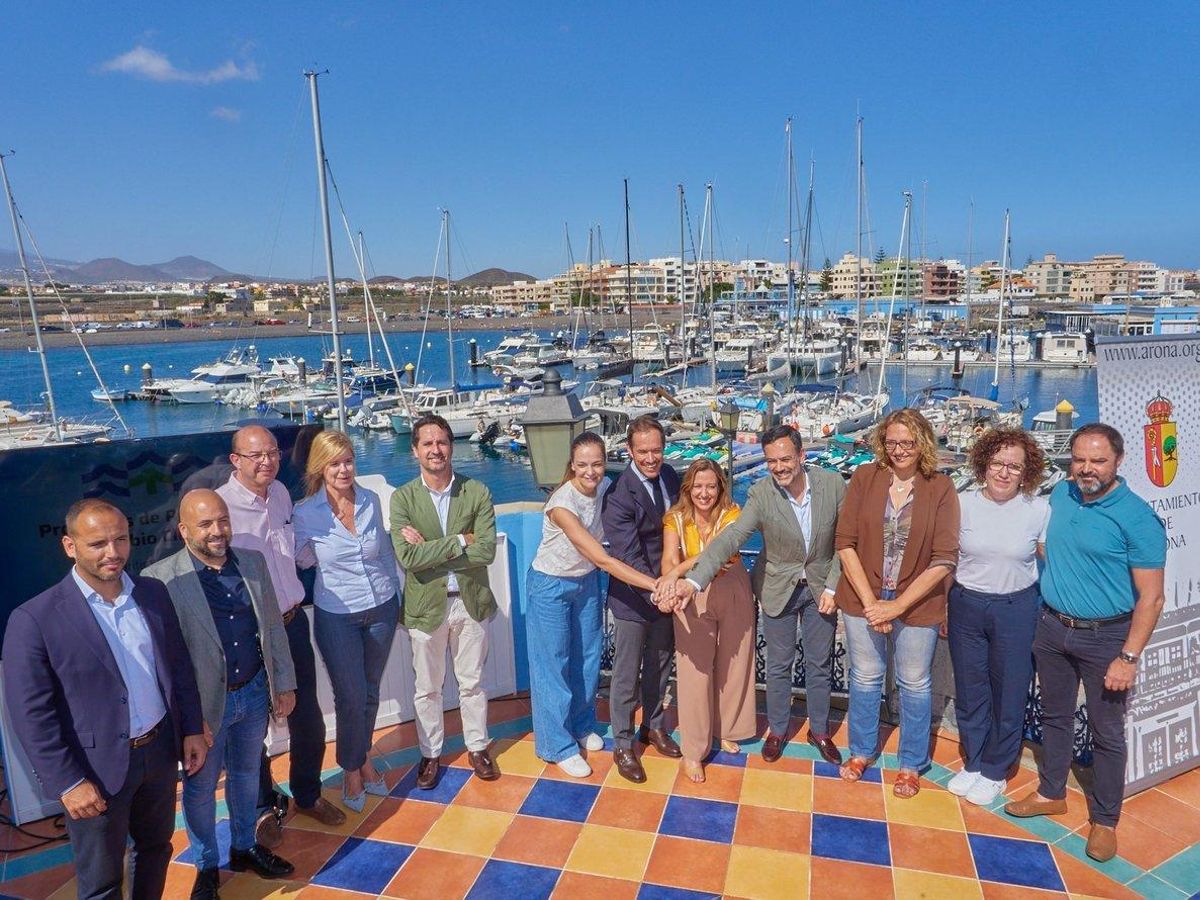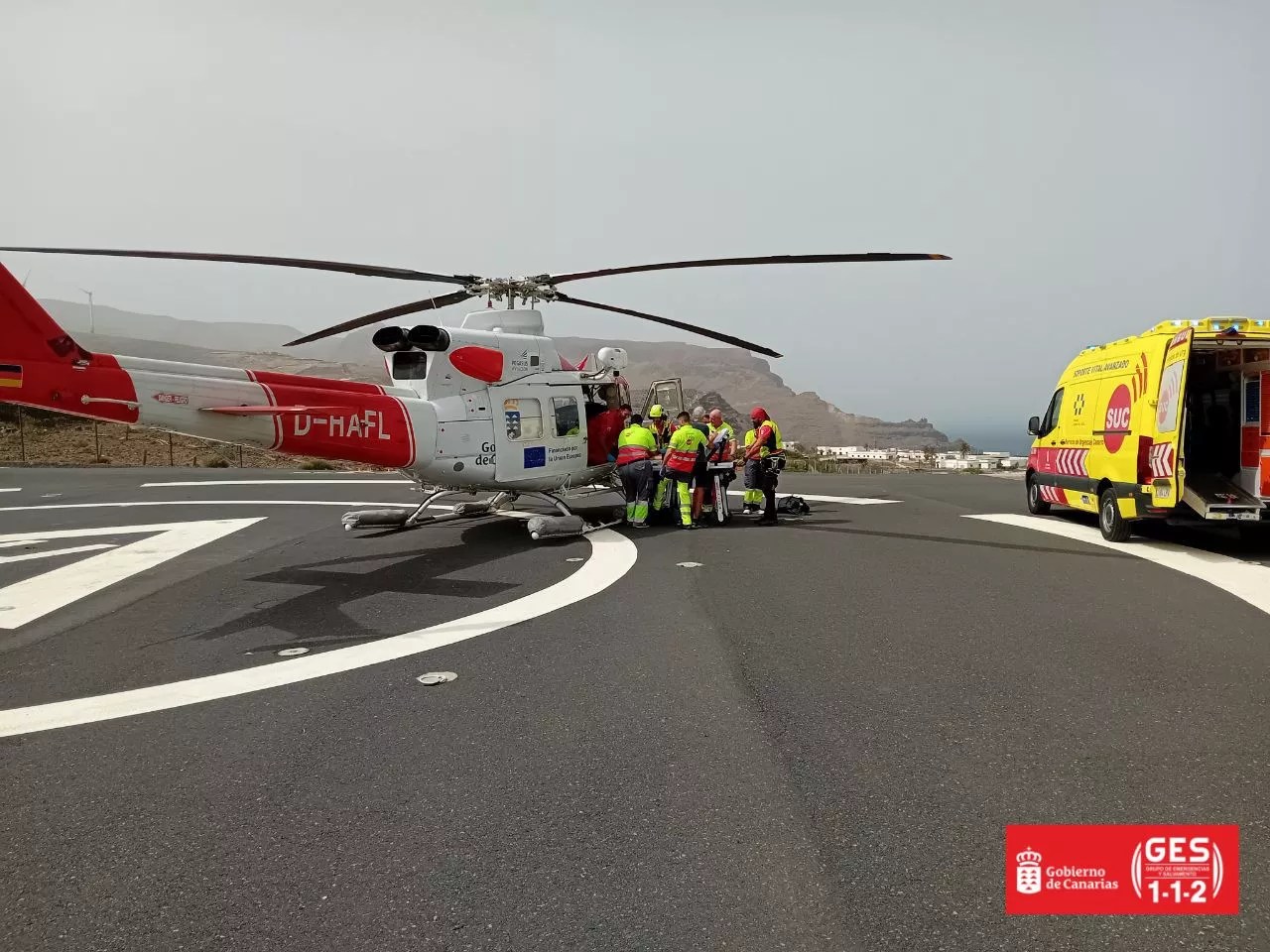The cookies will be the subject of the first performances on the Coast of the Canary Islands to combat climate change. The Three projected actions They consist of eliminating a section of road called Avenida del Atlántico by rebuilding it as a road away from the coast, creating spaces that facilitate the formation of mareles puddles and apply protection measures for the coastal urban nucleus.
These works are intended to expedite the adaptation of the maritime front of cookies to climate change «before the worrying rise in sea level». These projects are part of the agreement signed by the Ecological Transition Ministry of the Government of the Canary Islands, the Cabildo de Tenerife and the City of Arona in the framework of the Climate Action Project (PAC)which is possible by the modification of the law promoted by the Regional Executive last year. With this, there is a Reduction of administrative deadlines and procedures for the development of actions that have to do with the fight against climate change.
Essential works
The Substitution of the TF-66 section as access to cookies By the beach of the town for a layout inwards it is a “fundamental intervention to release coastal space and allow the implementation of solutions based on nature itself.” What the administrations call “renaturation and adaptation to climate change of the maritime front of the beach of the cookies” will allow “to improve local biodiversity and coastal resilience to climate attacks.”
The authorities emphasize that the project is the result of collaboration between administrations
The president of the Cabildo, Rosa Dávila stressed that this “pioneer” project is “an example of inter -institutional coordination.” He defended that “it is not just about relocating an avenue or protecting the coast” but of “defend a way of lifeto take care of the territory and to anticipate the challenges that are already here ».
Lope Afonso, Vice President and Insular Tourism Counselor, explained that “this protocol It has a marked strategic character“E” drives measures aimed at increasing the resilience of our territory and our society, with strategic projects in line with our economic, social and environmental sustainability policy. “
Starting point
The regional counselor of Ecological Transition and Energy, Marian Improve environmental quality and the experience of residents and visitors on the seafood of the area ». Finally, the counselor stressed the importance of institutional collaboration, highlighting that this first action is an example of coordination between administrations »and” the first visible example of application of this New Management Tool planned to facilitate adaptation to climate change and thus improve the quality of life of our neighbors ».
“A project that seeks to protect what surrounds us, improve the well -being of people and that protects our future and the next generations”
Fatima Lemes
– Mayor of Arona
In the presentation, Fatima Lemes, Mayor Aronera, referred to the relocation of Avenida del Atlántico, the renaturalization of the coast and the Urban Core Protection Measures Faced with floods, “a project that seeks to protect us, which seeks to improve the well -being of people but above all that protects our future and the next generations.”
The sports port and fishing cookie hosted the signing of the first agreement on Climate Action Projectsto combat the effects of climate change.

Authorities and representatives, in the act of presentation of the project. / Ed
A tool
The Canary Islands Government argues that it is provided with a tool that responds to several articles of the Canarian Law on Climate Change and Energy Transition (Law 6/2022), which affects the duty of the Public Administrations of Adopt measures to increase resilience In coastal areas and, in particular, of the Regional Executive, which has these powers to lead climate adaptation actions in natural, economic and social systems, says ecological transition in a statement.
In line with these regulations, and as a result of the PIMA state project, it adapts costs, also led by this Ministry – which identified 47 areas of high risk accumulated in the Canarian coast -, the Climate Action Projects (PAC) will allow plan and implement specific actions In these sections of coast, prioritizing solutions based on technical and environmental criteria. All this to protect the territory, ecosystems and coastal communities. This activity is also assumed as a shared responsibility between administrations under cooperation, collaboration and coordination in a framework of co -government through public policies in climate change.
















